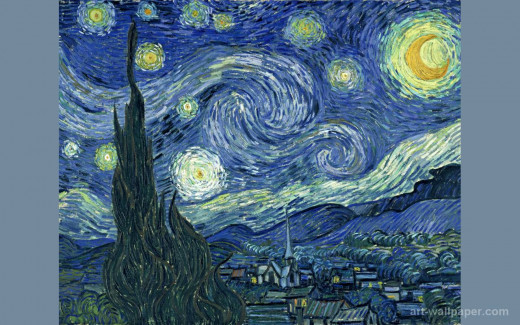Five Common Myths About Mental Illness

Myth #1: People with Mentally Illness Are More Likely to Commit Violent Acts
Statistically speaking, the mentally ill are no more likely to commit violent acts than any other group of human beings. In fact, the mentally ill are much more likely than the average person to be victimized by violence.
Often, after a dramatic mass murder, the press and the general public routinely refer to the perpetrator as a 'madman' or 'crazy person'. However, the criminal profile of the person most likely to commit a single mass murderous act has much more to do with age, race, and gender--namely, young, white and male--than with any diagnosable mental illness.
Although some of the people who commit mass murder are later diagnosed with a mental illness, many are not mentally ill in a clinical sense. Also, the vast majority of mass murderers plan their crimes carefully for a year or more--their crimes are not the result of a spontaneous lack of emotional or mental control.
Many of these men lack social skills and isolate themselves from others, which is not healthy, but again, is not a mental illness.
Myth #2: Mentally Ill People Must Be Locked Up in Insane Asylums, Often for Life
One of the reasons mental illness is so viciously stigmatized in the US is the pervasive belief that revealing a mental illness will eventually result in lifelong warehousing in a mental institution with little hope for escape. This keeps people from seeking treatment and allows others to spread inaccurate stereotypes instead of developing compassion and educating themselves.
During the 19th century and well into the 20th century people thought to be mentally ill could indeed be warehoused for life. In many parts of the world, mental illness is still a tool for incarcerating political dissidents indefinitely.
However, classic 'insane asylums' have not existed in the US for at least 50 years.
The goal of modern psychiatry is to enable a person with a mental illness to lead as close to a normal life as possible, and millions of people with serious mental illnesses lead perfectly normal lives and work in respected public professions.
Today, modern psychiatric hospitals and psychiatric wards are reserved for people in extreme crisis. These people are stabilized as quickly as possible and released with an outpatient treatment plan and as much social support as can be arranged.
With the reduction in affordable mental health services in the US over the past 30 years there are now so many people in crisis that it is very difficult to get into a psychiatric facility even briefly, even if you need one. So being warehoused for life is not remotely possible.
Myth #3: Mental Illness is Rare, Especially in the U.S.
Mental illness is common across the globe, and is increasing in most countries, including in the US. One in three people in the U.S. suffers from mental illness at any given time, and over the course of a life time, 57% of all US citizens will experience a bout of mental illness that requires professional intervention.
Anxiety disorders are the most common form of mental illness in the US (generalized anxiety disorder, social phobia, panic disorder, PTSD), affecting about one in four Americans. Depressive disorders (major depressive disorder, dysthymic disorder) are the second most common, and mood disorders (for example, bipolar disorder) are the third.
Myth #4: Psychiatric Medications Should be Avoided at All Costs
In the US, the pharmaceutical industry is able to advertise drugs the way clothing manufacturers advertise shoe styles. This has lead to a vigorous discussion of the overuse and abuse of SSRIs and other psychiatric medications, and is part of an ongoing debate about the US for-profit medical system.
However, the fact remains that for the most common mental illnesses--anxiety disorders, depression, and mood disorders--proper medication in the proper dose is essential to successful treatment. Many people with anxiety or depression are able to come off of medication gradually after about two years. Others must stay on medication for life.
The idea that medication is bad is based on the myth that mental illness is a character flaw, not a true physical illness. Yet thirty years ago mental health professionals were already responding to studies showing that depression and many other mental illnesses have more in common with physical illness than was previously thought.
Many mental illnesses are analogous to chronic physical illnesses like diabetes and high blood pressure. Lifestyle changes and psychotherapy can help and are in fact necessary. Medication is also necessary. If you are diabetic you need to avoid sugary foods and take your insulin. If you are bipolar you need social support, a manageable environment, and the proper dosage of medication to stabilize your moods.
Myth #5: Mental Illness is a Shameful and a Sign of Personal Weakness
Chances are excellent that one or more of your friends or family suffers from a mental illness and functions as well as any other person you know. Mental illness is treatable and living well while coping with mental illness is not only possible, it is a likely outcome when addressed early.
Stigmatizing mental illness causes people to avoid seeking help and to suffer needlessly. Some mental illnesses are purely organic, the result of heredity or a biological problem. Most are a combination of heredity, biology, and life experience.
Many famous, successful people cope with an ongoing mental illness. A few of these people are:
- Actresses Parry Duke, Carrie Fisher, and Catherine Zeta Jones (bipolar disorder).
- Talk show host and essayist Dick Cavett (major depression).
- Brooke Shields (postpartum depression).
- Anchor woman Jane Pauley (bipolar disorder).
- Famous economist and math genius John Nash (paranoid schizophrenia).
- Academy award winning actress and screenwriter Emma Thompson (major depression).
- Heisman trophy winning NFL player Herschel Walker (dissociative identity disorder--formerly known as 'multiple personality disorder').
- Howard Huges (OCD, an anxiety disorder).
- Paula Deen (agoraphobia--a phobic disorder which causes people to fear leaving the house).
- Curt Cobain (ADD and bipolar disorder).
Help Spread the Truth
The truth about mental illness is that more than half of all Americans will suffer from it at some point in their lives, and without access to good, affordable care, everyone suffers.
You can help by learning the facts.
Don't use words 'like 'crazy', 'madman', 'wacko', etc. to describe people with problems.
Don't use psychiatric terminology to refer to habits that have nothing to do with mental illness (for example, saying "He is so OCD" to mean someone is very neat, or saying "she is so schizophrenic" to indicate someone is emotionally scattered).
Don't equate violence with mental illness. Violence is most often a result of poor socialization and stuffed rage, and is not, in and of itself, a mental illness. A few mental illnesses can cause violent outbursts when poorly managed. Most do not.
Don't tell other people to stop taking their medications for depression or any other mental illness until 1) you obtain your medical degree and 2) that person asks for your advice.
Lobby your Congressperson for an expansion of affordable mental health resources.
Chances are very good you will one day need them yourself.
Resources for Information, Support, and Treatment
- Anxiety and Depression Association of America, ADAA | Anxiety Disorders are real, serious, and treat
- Live Your Life Well: Depression Screener
- AFSP: Understanding and Preventing Suicide Through Research, Education and Advocacy
- National Suicide Prevention Lifeline – Suicide Prevention Crisis Hotline
National Suicide Prevention Lifeline 1-800-273-TALK (8255): Suicide hotline, 24/7 free and confidential, nationwide network of crisis centers - Centers for Disease Control and Prevention
CDC Centers for Disease Control and Prevention - Your Online Source for Credible Health Information - National Institutes of Health (NIH)
Official website of the National Institutes of Health (NIH). NIH is one of the world's foremost medical research centers. An agency of the U.S. Department of Health and Human Services, the NIH is the Federal focal point for health and medical researc - NAMI: National Alliance on Mental Illness - Mental Health Support, Education and Advocacy







